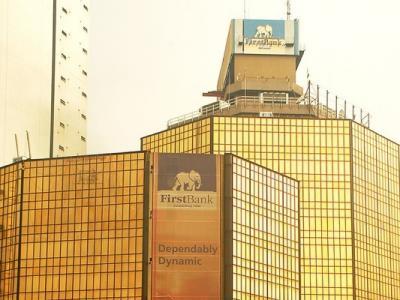FBN Holdings Plc (FBNH), owner of First Bank Nigeria, plans to raise $500 million by selling a Eurobond this year after abandoning a similar offering in 2012.
The money “is needed to finance investments in loans and infrastructure,” Chief Executive Officer Bello Maccido said yesterday by telephone from Lagos, the country’s commercial capital.
“The bank intends to expand its investment banking and commercial business as well as insurance.”
First Bank, the West African nation’s third largest lender by market value, suspended plans to issue the bond last year because of market conditions, Maccido said. “We believe conditions will be favorable this year,” he said.
The lender is joining other Nigerian banks seeking to raise dollars to finance oil, power and infrastructure projects in Africa’s top oil producer. Nigerian banks are returning to profit after the industry came near to collapse in a debt crisis in 2008 and 2009, with many boosting capital levels.
Fidelity Bank Plc (FIDELITY) sold a $300 million five-year bond May 2. Diamond Bank Plc (DIAMONDB) plans to offer as much as $750 million this year, while Skye Bank Plc wants to raise $150 million.
First Bank, which has offices in six countries outside Nigeria, does not plan to enter new foreign markets this year, Maccido said. The lender is focusing on Nigeria for growth, with 17 branches opened in the first quarter, bringing its branch network in the country to 807, he said.
The stock rose 0.5 percent to 19.71 naira at the close of Lagos trading yesterday. FBN Holdings has gained 25 percent this year, beating the 19 percent increase in the Nigerian SE Banking Index, which tracks Nigeria’s 10 biggest banks.
Record Sales:
Nigerian banks are following African governments outside of South Africa that plan to sell $7 billion of sovereign debt sales this year, more than in the past five years combined, as yields more than double those of Treasuries lure investors repelled in the past by violence and corruption.
Nigeria, sub-Saharan Africa’s most populous nation and second-largest economy, is selling majority stakes in power plants and letting private investors acquire as much as 60 percent in six transmission and 11 power distribution companies spun out of the former state-owned utility.
Banks have also increased lending to the oil industry as smaller producers expanded drilling to boost output. Companies including London-based Heritage Oil Plc and Lagos-based Neconde Energy Ltd. bought stakes in fields owned by Royal Dutch Shell Plc, Eni SpA and Total SA.
Yields Drop:
The Nigerian Stock Exchange All-Share Index (NGSEINDX) has advanced 23 percent this year, the third-best performance in Africa, according to data compiled by Bloomberg.
Yields on the West African nation’s Eurobonds have fallen five basis points, or 0.05 percentage point, this month to 4.05 percent by 10:16 a.m. in London.
Central Bank of Nigeria Governor Lamido Sanusi fired the chief executive officers of eight of the country’s 24 lenders in 2009 and the government set up the Asset Management Corp. of Nigeria in 2010 to buy bad debts from the country’s banks.



Leave a Reply